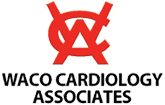An arrhythmia is a condition caused an electrical issue in the heart, which produces abnormal rhythms. These abnormal rhythms could cause the heart to pump less efficiently. Normally, the heartbeat begins at the top of the right atrium when a special group of cells sends an electrical signal. These cells normally determine the frequency of the beats and the heart’s natural rhythm. An arrhythmia occurs… When the heart’s natural pacemaker adopts an abnormal rate or rhythm. When the normal conduction path is interrupted or new abnormal circuits are formed. When another part of the heart starts to work as the pacemaker. The heart’s normal rate or pulse The heart beats when the electrical impulse goes through it. When a person is at rest, the heart beats approximately 60 to 80 times per minute. The atria contract a fraction of a second before the ventricles. This allows the atria to pump blood to the ventricles before they contract. Causes of arrhythmias Many arrhythmias have no known cause. However, there are various factors that could potentially contribute to arrhythmias. These include heart disease, high blood pressure, diabetes, smoking, excessive alcohol consumption, and stress. It is known that some substances, including some over-the-counter and prescription medications, nutritional supplements, and herb-based remedies, can cause arrhythmias in some people. Prescription medications can also contribute to the appearance of arrhythmias. Slow heart rhythm symptoms and treatments A heart rate of less than 60 beats per minute is called bradycardia. When at rest, physically active people tend to have a heart rate below 60 beats per minute. For them, this is not abnormally slow. Bradycardia generally does not require treatment, unless there are symptoms such as fatigue, dizziness, swooning and fainting or near fainting. These symptoms are generally due to insufficient blood flow to the brain. The elderly are more likely to have slow heart rate problems. These symptoms may sometimes be medication-related. In some cases, it may be necessary to implant a pacemaker under the skin to accelerate the heart rhythm to a more normal rate. Fast heart rate symptoms and treatments A heart rate of over 100 beats per minute is called tachycardia. It can cause palpitations, chest pain, dizziness, swooning, and fainting if the heart beats too fast for the blood to circulate well. The heartbeats may have a regular or irregular rhythm. When the fast heartbeat begins in the ventricles, what is called ventricular tachycardia (v tach), it may interfere with the heart’s ability to pump enough blood to the brain and other vital organs. This type of arrhythmia can quickly degenerate into ventricular fibrillation (v fib). Ventricular fibrillation is the most serious heart rhythm abnormality and can be fatal if left untreated. In v fib, the ventricles tremble and the heart cannot pump any blood. This can cause sudden cardiac death unless immediate medical intervention is received. If treated in time, ventricular tachycardia and ventricular fibrillation sometimes can revert to a normal rhythm using a defibrillator. An effective way to treat these potentially fatal rhythms in someone felt to be at increased risk of developing these arrhythmias, is through the use of an electronic device called an implantable cardiac defibrillator (ICD). Fast heart rhythms can be controlled with medications or by identifying and destroying the source of the rhythm abnormality. When fast heartbeats begin in the atria, it is called a supraventricular tachycardia (SVT). Reentrant tachycardia occurs when there is a “short-circuit” of electrical signals between the atria and ventricles. Normally, the only way that signals go between the atria and ventricles is through the AV node. If there is another electrical pathway between the atria and ventricles, a “closed circuit” may occur, in which the electrical current travels quickly over and over again through the short circuit and the AV node and produces a very rapid heart rate. These SVT’s sometimes can be controlled with medications. Sometimes they can even be cured by using electrical catheters threaded up into the heart to map out the abnormality, and then ablating the abnormality using a focused amount of energy (an ablation). In atrial fibrillation, the atria tremble instead of beating efficiently. The atria beat at over 300 beats per minute. This reduces the heart’s efficiency because less blood flows through the atria toward the ventricles. Medications can be prescribed to help control the heart rate and/or rhythm. In addition to causing symptoms such as palpitations, chest pain, shortness of breath or dizziness, clots could form in the atria due to blood stagnating and this increases the risk of stroke. This is why many of these patients need to take a blood thinner (warfarin or Coumadin). Diagnosis of arrhythmias The specific type of abnormality or irregularity of the heart rhythm causing the arrhythmia or symptoms can be diagnosed on an electrocardiogram (ECG) if the arrhythmia occurs while the ECG is being performed. Otherwise, an ambulatory electrocardiographic monitor, known as a Holter monitor, can be placed and worn by a patient (usually for 24 hours). If symptoms are occurring every several days or weeks, then different types of event recorders can be used to help correlate the symptoms with the type of arrhythmia.
Caring for the hearts of Central Texas Since 1971
(254) 399-5400

